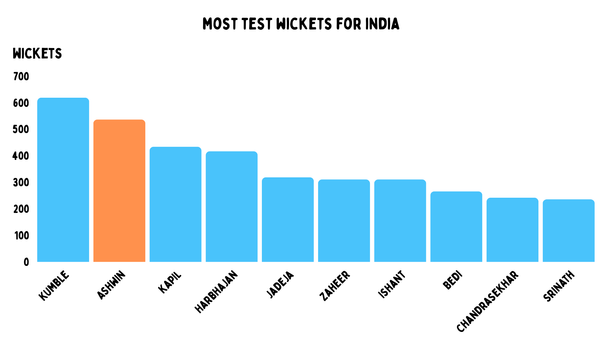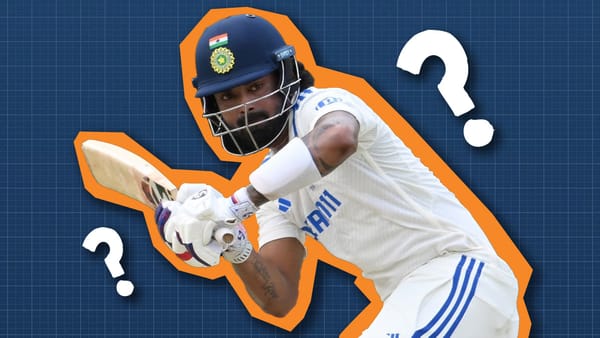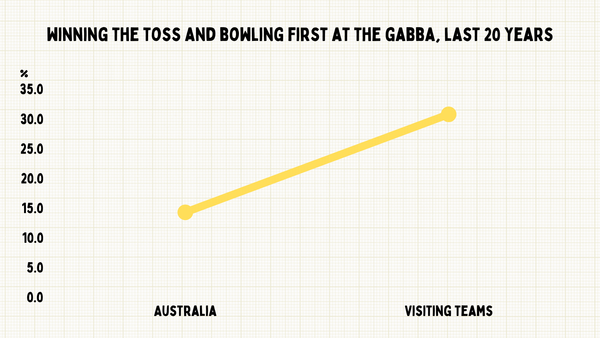Coaching forward defence and the conversation we don't have enough of
Jamie Mitchell's story and the taboo subject
Do you remember that feeling when a coach would teach you the proper forward defensive technique by coming up behind, kinda mounting you. It was a pretty standard bit of cricket coaching back in the day. Even if they did it without rubbing their groin on your back or butt, it was kinda weird. To have this large person towering over you, rubbing up against your back or arse. And being that cricket is a summer game, or played in always hot places, their sweat would be all over you.
I can’t imagine anyone liked that, and in fact, one of the first things you learn when training to be a coach these days is not to use this method.
But many of us were younger and starting out; this was how forward defence was taught. It isn't used as much now, because of safeguards to help protect children playing cricket. And because so many men - and I assume a few women - used this as a method to rub themselves on children.
I am talking about this now because former cricketer Jamie Mitchell has spoken out about an incident when he played for the Australian Under 19 team in the 80s. Mitchell was a former childhood friend of Paul Reiffel and was on that tour with future Australian players.
Mitchell's revelations come about an injection he received and the coach Bob Bitmead's treatment of young Indian and Sri Lankan boys. The story is horrific and made worse by the players and parents complained and nothing was done. The coach never got another job, but the Australian Cricket Board, as they were then known, just buried it.
You should definitely go read Russell Jackson's story on Jamie Mitchell's (trigger warnings on this) time on an Australian Under 19 team in 1985.
But this also gives us a chance to look at something that we don't talk about enough in sport, predators off the field. This isn't just a one-off story from Mitchell. We've seen enough over the last few years that show this isn't just about Australian cricket or even cricket.
For generations, young athletes have dealt with everything from creepy coaches to rapists. All my friends had a story somewhere on this spectrum. From a coach always finding a way to chat to them when they were in the shower every time, the administrator who gave them long massages when they got hurt, or someone actually sexually assaulting them.
And in sport, we kind of passed these tales around like Hollywood used to make jokes about the casting couch. It was almost a rite of passage to overcome; my friends would boast about how they beat the perv. And if you were lucky enough, you got a warning before getting into the car with the wrong person, to begin with.
I remember bringing up with an administrator that so many of my friends had told me bad stories about another administrator in our sport. And the person I told - who was a police officer in his day job - shut me down before I finished my sentence. Those days have to end. There needs to be processes for young people in sport to raise complaints.
And remember, I wasn't a young professional athlete, me and most of my friends were only ever going to be amateurs. We didn't spend that much time alone with coaches.
It's often the players who come through the systems when trying to become pros at most risk. Camps/academies/private coaching sessions are high-risk environments. And I don't think sport has really ever understood that.
Many people love to coach kids in sport for various reasons, and it's not fair to suggest this is anything like the majority. But it's also like anything involving children; if it is not properly safeguarded, then situations like this will continue to arise because predators will take advantage.
Mitchell's story is an extreme example of what can go wrong. Hopefully, something that would be far less likely today. But you can see through articles like this, the documentary series Athlete A, and the Penn State scandal in the US that this is a far bigger problem than is often discussed.

And I received this tweet from Andrew Nixon about it.
@ajarrodkimber I work in education in my day job where safeguarding is taken very seriously. Given that context I remain astonished that I was part of the PCT for 3 ICC U19 tournaments and 1 U15 tournament without ever having to have a criminal records check or do any safeguarding training.
— Andrew Nixon (@andrewnixon79) 12:24 PM ∙ Jan 2, 2022
This is concerning, but certainly, many cricket boards have got tighter on this. But there is still work to be done.
The next decade or so of sport will be about historic - and occasionally current - cases of sexual assault in sports. There are many like Mitchell out there that are now coming forward.
We now have writers like Russell Jackson who are almost becoming experts in dealing with athletes and their trauma. And this is partly a societal problem, but also in how sport is run and administrated. I think the safeguards are better in modern times, but that is not the case sport-wide.
And sport is different to many of the other places something like this happens. Young athletes put their bodies on the line. That is part of making it a professional or even a decent amateur who just loves playing. And I wonder if sometimes the toughen up and get on with part of sport means we turn away from stories like Mitchell's.
But there are more, and we need to listen because even though he might have felt alone for a long time, but he's not. And how we deal with this as fans, media, and administrators will affect people's lives.
If this all is shocking to you, I suggest you read Mitchell's story or watch Athlete A. But sadly I fear that to most people who played a lot of sport when they were young; this just won't be that surprising.
If you were a young cricketer like me, that hot wet feeling on your arse was just part of the game. And I say this as someone who coached, and probably used the same method until I knew better. But we do know better now, and changing the game while being honest about what we did before is all part of it.
🎙 New Wagon Wheel 🎙
— Jarrod Kimber (@ajarrodkimber) 5:39 PM ∙ Jan 1, 2022
England’s batting, the South African team, systems in cricket, the next Test nations, and so much other stuff.
anchor.fm/redinker/episo…



